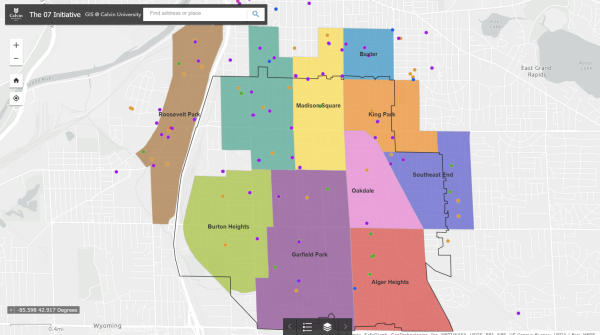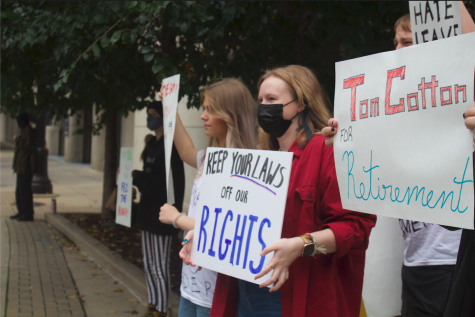New legislation to crack down on human trafficking
In a state entrenched in human trafficking, a new law will require training for health care professionals to identify the signs of human trafficking in an effort to cut down on the severity and number of people being trafficked.
The legislation, praised by Governor Snyder as a strong measure to protect citizens from trafficking, fight repeat violations by traffickers and provide greater supports for victims, took effect in January.
The signs of sex or labor trafficking are often clear to trained individuals, but many health care providers are not able to read these signs, and there are many missed opportunities for intervention and prevention.
In an effort to address this omission, the new legislation will educate health care providers with training to identify symptoms of human trafficking in their patients.
The additional training is targeted at health care professionals because of their extensive contact with victims. According to a 2014 study presented at this month’s conference, Human Trafficking: Training for Health Care Providers, 87.8 percent of trafficking survivors surveyed reported they had been in contact with a health care provider during their time as a victim.
Physical effects of human trafficking can include sexually transmitted diseases and signs of sexual abuse, physical injuries resulting from forced labor and infectious diseases like tuberculosis or hepatitis stemming from unsanitary and overcrowded living situations.
Within two years, all licensed health care professionals will be required to be trained in human trafficking. The law will also address the psychological impacts that trafficking has on victims.
The legislation has also established two human trafficking commissions comprised of Michigan representatives and senators who will focus on additional measures to cut down on human trafficking within the state.
“This is a huge step in trying to prevent and identify human trafficking. As a border state, Michigan is more susceptible to being involved in this; therefore, taking active steps against trafficking is necessary and beneficial,” Calvin’s Voices Against Human Trafficking organization said in a statement. “Training someone to identify patterns, injuries and signs of trafficking could be inexpensive and very effective.”
While there are no reliable estimates for how many people are trafficked in Michigan, the problem is pervasive. The Women’s Funding Network estimated that 141 adolescent girls were victims of sex trafficking in May 2010 alone, excluding all other demographics, those sold in discrete circumstances and those trafficked for labor.
“I’m proud of all that we have done in Michigan to prevent human trafficking,” said Governor Snyder, upon signing the bill into law. “We must keep working together to bring a stop to this dangerous threat that has affected too many in our state and nation.”
Many hospitals and other health care providers currently train their employees above and beyond the requirements, but the gap in training allows individuals to fall through the cracks.
According to Matthew Kasper, program director for the Sexual Assault Nurse Examiners Program at Lansing’s Sparrows Hospital, the new legislation will have a great impact on smaller communities where traffickers often take victims because the staff are under-trained in identifying and dealing with symptoms associated with trafficking.
While awareness for the issue of human trafficking has increased in recent years, ignorance on the prevalence of the issue in Michigan remains.
According to the 2013 Michigan Human Trafficking Commission Report, “many citizens are unaware that it is happening right here in Michigan because human trafficking is an evasive activity conducted through secrecy and deception.”
The newly formed Human Trafficking Health Advisory Board and Human Trafficking Commission intends to raise public awareness of the problem in order to implement change and increase the visibility of victims.
“If we hope to eradicate human trafficking within Michigan, we must raise awareness of what trafficking looks like and educate our citizens on how to recognize its signs,” said State Senator Judy Emmons. “Every Michigan resident can make a difference, and it starts with awareness.”







